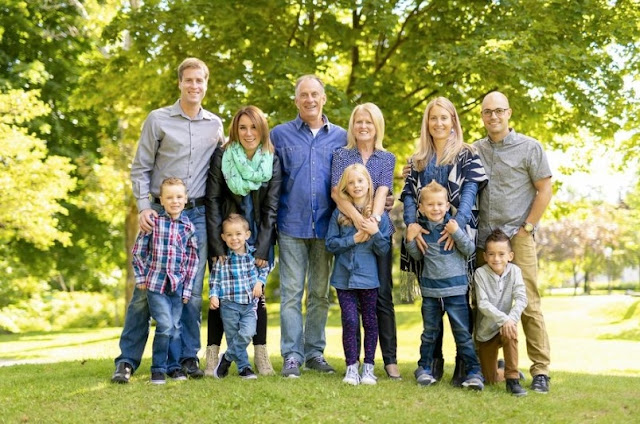In what circumstances would your child end up living with your relative during a CPS case?
If you have need a best suitable service your Child Law experience, In what circumstances would your child end up living with your relative during a CPS case? with the great process!
Houston Family Lawyer: If you have a relative or close family friend or is able and interested in housing your child during a Child Protective Services (CPS) case then you should speak to that person about contacting CPS. Obviously, their home would need to be safe to be up for consideration. Just because a family member is willing to house your child does not mean that a person is well suited for that responsibility. You can also provide your CPS caseworker with that person’s name and contact information and the caseworker can make the initial contact that way.
An assessment will be done for any person who throws their hat into the ring to be considered as a temporary landing spot for your child. That home assessment will review your relative's background, their home, and their overall suitability to be a placement location for your child.
What will CPS do to help your child ensure that they are able to go to school during the CPS case?
CPS wants your child to be able to attend school and be successful in doing so. Just because the rest of your life is a little topsy turvy at the moment doesn’t mean that your child’s education has to be held back. It goes without saying that children that are better educated and exposed to more opportunities to learn have a head start over those children that do not.
Your child’s caseworker will work with your child, their school and your child’s foster family in order to help you do well in school. For older children, graduating from high school and then preparing for life on their own is a major developmental step for these kids.
CPS will aim to keep your child enrolled in the same school he or he has been attending before being removed from your home. However, it may be determined that staying at the same school is not good for your child or Is not possible. In that case, your caseworker or foster parent will enroll you in a new school within a few days so that your educational goals may be met. Wherever your child will go to school, the caseworker and the foster family will ensure that transportation is provided for your child.
School districts employ persons to work with foster families helping to address the needs of students who are in foster care. If your child is having problems with their schoolwork then he should alert their foster parent, a caseworker with CPS, their teacher or a counselor to let him or she knows.
Part of the monthly visits that your child has with their caseworker will revolve around performance in the classroom. Their caseworker will even help your child to pick out classes to take in high school in order to earn a diploma.
What happens if your child is about to turn 18? Does CPS offer any programs for him or her?
Your child will no longer be in the custody of the state after he or she reaches 18 years old. However, it is not required that your child leave foster care at that time. Your child may not be in a position to leave foster care and live on their own at that time. It is possible that your child will have educational goals yet to accomplish and he or she may still need to save money to rent an apartment, buy a car or do a range of activities that are necessary for a person who is living independently.
There will be a trial independence period that can last for up to six months after your child leaves foster care. A judge in your child's case can extend this period of time for an additional six months. During this time period, there will most likely not be anything happening in your case and your child will not have to go to court for many reasons.
Additionally, your child can remain in extended foster care until their 21stbirthday if he or she needs additional time to work on their career, education or their housing situation. In order to take advantage of this program, you would need to tell CPS that you will be attending a college or vocational school, going to a work preparation program or be working at least 80 hours a month.
Definitions of common words and phrases that you will hear in conjunction with a CPS case
Divorce Lawyer Houston: Attorney ad litem: refers to a lawyer that is assigned by the judge in your CPS case to represent the interests of your child. Your interests, it may surprise you to learn, do not always match up perfectly with those of your child in CPS cases. For example, if you truly do offer a long term threat to your child’s well being it is not in the best interest of your child for your child to return home to you.
You will probably disagree with that and will work to have your child returned home, however. The job of the attorney ad litem is to work with your child to see what their desire is far as a permanent solution to where he or she will live.
Guardianship: It may be that your child is not able to care for himself/herself after their 18thbirthday due to a disability or impairment. If that is the case, a judge can appoint a guardian for the child. These are very extreme situations that warrant the appointment of a guardian. The state wants all adults to be able to make decisions for themselves if at all possible. You may be appointed as a guardian for your child or if your parental rights are terminated, another person would fulfill that role.
Court Appointed Special Advocate: A Court Appointed Special Advocate (CASA) is a volunteer who works through the court to advocate on behalf of your child. This person may or may not have any background in the law or with CPS. This is a person that has a heart for families in need. The CASA volunteer will work with your child, their foster family and you to make recommendations to the court as to what should happen with your child on a long term basis.
CPS Caseworker: A CPS caseworker will work with you and your child while he or she is in foster care. This person will ensure that your child is being cared for, that he or she is going to school and that you are working on the goals of your CPS service plan. The caseworker is your primary point of contact between yourself and CPS. Developing a relationship with this person and communicating with him or her as often as possible is a good goal to have.
Managing Conservator: The ultimate job of the judge in your child’s CPS case is to determine who should have the right to make decisions, care for your child and provide a home for your child on a long-term basis. The name of the person with these rights is known as the managing conservator of your child.
You could be named as the managing conservator of your child, a relative could be named as such or the state could fill that role. This role is similar to that of a guardian, which we discussed earlier in this blog post. The key difference is that a guardian looks out for the interests of a person over the age of 18.
Permanency plan: Child Protective Services will work with the judge in your case to develop a plan whose ultimate goal is to find a place for your child to live on a permanent basis. The best interests of your child are the primary consideration to be made in this regard. That can be difficult to understand for parents. The judge's primary concern is not what you want or what will make you feel good.
Often times the goal of a permanency plan will be to reunite your child with you in your home. In other cases, the goal of the permanency plan will be to have your child live permanently with a relative. Still, others will see the goal as having your child remain in the custody of the State.
Thoughts on foster care and CPS
Houston Divorce: Without a doubt, nobody wants to become involved in a CPS case. Likewise, nobody wants their child to be removed from their house and placed into foster care. However, if you find yourself in a position where these folks have become a part of your life you should not take a passive approach to the case. Learn as much as you can about both subject areas so that you can make good decisions for yourself and for your child ... Continue Reading



Comments
Post a Comment